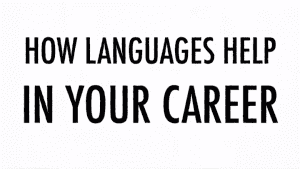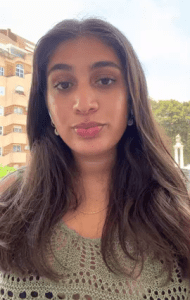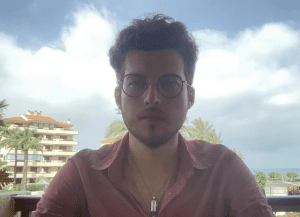- About Us
- Admissions
- Academic Life
- School Life
- Sixth Form
Being able to speak more than one language is a vital skill in today’s rapidly changing world, and those taught at DAOS (French, German and Spanish) are global and highly influential languages that give students the opportunities to travel, study and work in many countries. There are many benefits that come with studying a modern language, including:
How languages can help your career, from Oxford University (click the image for video)

Some of our recent alumni discuss what studying languages has given them (click the images for video)








The languages department is a dynamic team of experienced teachers who are passionate about their subject and who aim to impassion their students in turn.
Our teaching methods are interactive, and students develop confidence in understanding and responding in the language through regular pairwork, interactive games and structured practice. The emphasis is on communication. Students are taught grammar in context, and this builds in complexity as they develop in confidence.
Students have access to state of the art interactive online learning platforms Language Nut (all students) and This is Language (KS4 and KS5). These help students to develop their listening and speaking skills alongside the more traditional vocab and grammar learning. They can be accessed in class using our class sets of chromebooks, but also for independent revision or exploratory practice away from school using a home PC or mobile phone.
The department immerses students in the language and culture of the countries of study: we offer an extensive extra-curricular programme at the heart of which are our well-established residential trips abroad for years 9 and 12: both traditional exchange with partner schools, and study trips or work experience in France, Germany or Spain. We expect to revive these as soon as the public health situation allows it. We also offer a wealth of enrichment opportunities more locally and in school: recent examples include A Level study trips to the British Film Institute, Pecha Kucha public speaking competitions, and foreign language plays performed for KS3 students. There are also numerous student-led lunchtime clubs and support sessions.
We want our students to achieve their full personal and academic potential, and access all the advantages and opportunities that are open to speakers of more than one language. This is why DAOS students are expected to study two languages in KS3, and at least one language to GCSE level. Many students choose to study 2 languages at GCSE. French, German and Spanish are a popular choice at A Level, and a healthy number of students go on to study languages at university, either as a specialism or in combined honours courses.
Students study two foreign languages from the start of Year 7. The language that is studied by all Year 7 students alternates each year between French, German and Spanish. The second language is assigned by the school, although we are able to accommodate requests when a student has a compelling and specific reason for choosing a particular language.
KS3 languages |
Topics and skills |
| Year 7 |
|
| Year 8 |
|
| Year 9 |
|
GCSE languages |
Topics and skills |
Exam Board |
Spec.No |
| GCSE French |
Building on work done in KS3, students gain a good level of proficiency in listening (25%), speaking (25%), reading (25%), writing and translation (25%). The focus is on talking about personal experience.
|
AQA | 8658 |
| GCSE German | 8668 | ||
| GCSE Spanish | 8698 |
A level languages |
Building on work done in KS4, students gain a high level of confidence, fluency and accuracy in speaking (30%) listening, reading, writing and translation (50%) on a range of topics associated with the target language culture. Learners respond critically and analytically to a film and a novel in the target language (20%). |
||
| A Level French |
|
AQA | 7652 |
| A Level German |
|
7662 | |
| A Level Spanish |
|
7692 | |
Mr C Tanner (Head of MFL)
Dame Alice Owen’s School
Dugdale Hill Lane
Potters Bar
Hertfordshire
EN6 2DU
01707 643441
[email protected]
Mon – Fri 8:00A.M. – 5:00P.M.